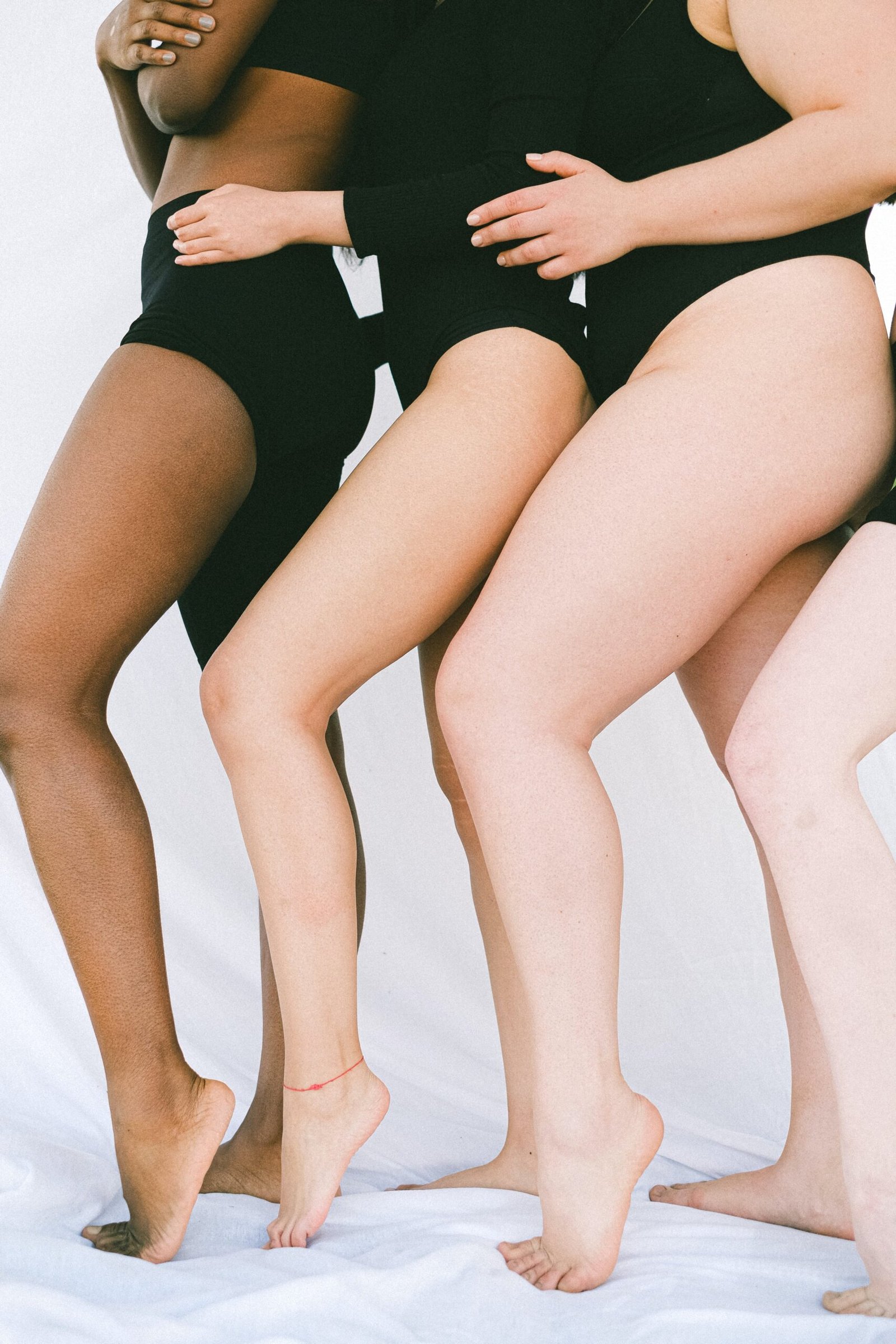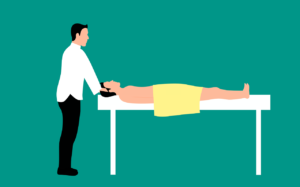
Are you tired of waking up feeling sore and achy after a tough workout? Look no further! In this comprehensive guide, we will explore the best sleeping position for muscle recovery. Whether you’re a fitness enthusiast or simply someone who wants to wake up feeling refreshed and rejuvenated, this article is packed with valuable tips and insights to help you optimize your sleep and promote faster muscle healing. Say goodbye to those post-workout pains and hello to a great night’s sleep!

Importance of sleep for muscle recovery
Getting enough quality sleep is essential for muscle recovery and overall health. Sleep is a time when your body repairs and rejuvenates itself, and this includes the muscles. During sleep, the body produces growth hormone, which is crucial for muscle growth and repair. Without adequate sleep, your muscles may not have enough time to recover properly, leading to decreased performance, increased risk of injury, and slower progress in your fitness goals.
Sleeping for muscle recovery
Sleeping is a natural process that allows your body to rest and recover from the day’s activities. It is during sleep that your body repairs damaged muscles, replenishes depleted energy stores, and regulates hormone levels. By getting enough sleep, you are giving your muscles the opportunity to recover and grow stronger.

Benefits of quality sleep for muscles
When it comes to muscle recovery, quality sleep is paramount. Here are some of the benefits of getting sufficient sleep for your muscles:
1. Increased protein synthesis:
Sleep allows your body to produce more proteins, which are the building blocks of muscles. This means that your muscles have the necessary resources to repair and rebuild themselves after exercise.
2. Improved muscle growth:
During deep sleep, your body releases growth hormones that promote muscle growth. These hormones stimulate the repair and regeneration of muscle fibers, leading to increased muscle mass and strength.
3. Enhanced muscle performance:
Adequate sleep improves muscle coordination, reaction time, and overall athletic performance. When you are well-rested, your muscles are less fatigued, allowing you to perform at your best during workouts and physical activity.
4. Reduced muscle soreness:
Getting enough sleep can help alleviate muscle soreness and stiffness. It allows your muscles to recover from the micro-tears that occur during exercise, reducing post-workout pain and discomfort.
5. Optimal hormone balance:
Sleep plays a crucial role in regulating hormone levels, including cortisol and testosterone. Adequate sleep helps maintain a healthy balance of these hormones, which is important for muscle recovery and growth.
Effects of poor sleep on muscle recovery
On the other hand, insufficient or poor-quality sleep can have detrimental effects on muscle recovery. Here are some of the negative effects of not getting enough sleep:
1. Slower muscle repair and growth:
When you don’t get enough sleep, your body produces less growth hormone, which can impede muscle repair and growth. This can lead to slower recovery and limited progress in your fitness goals.
2. Increased muscle breakdown:
Inadequate sleep can elevate levels of cortisol, a stress hormone that promotes muscle breakdown. High cortisol levels can interfere with protein synthesis and contribute to muscle loss.
3. Reduced muscle strength and performance:
Lack of sleep can negatively impact muscle strength, endurance, and overall athletic performance. Your muscles may feel weaker and less responsive, making it harder to achieve optimal results during workouts.
4. Greater risk of injuries:
When your muscles are not fully recovered and rested, they are more susceptible to injuries. Fatigue, decreased coordination, and impaired reaction time can increase the risk of accidents and muscle strains.
5. Increased inflammation:
Poor sleep can lead to chronic inflammation, which can hinder muscle recovery and contribute to muscle soreness and stiffness. Inflammation can also delay the healing process and prolong recovery time.
It is clear that sleep plays a critical role in muscle recovery and overall fitness. Now that we understand the importance of sleep, let’s explore the factors to consider when choosing the best sleeping position for muscle recovery.

Factors to consider for choosing the best sleeping position
When it comes to muscle recovery, your sleeping position can significantly impact the effectiveness of your rest. Here are the key factors to consider when choosing the best sleeping position for muscle recovery:
1. Body alignment:
A good sleeping position should promote proper body alignment, ensuring that your spine, neck, and joints are in a neutral position. This minimizes the strain on your muscles and prevents unnecessary discomfort.
2. Comfort and support:
Choose a sleeping position that feels comfortable and provides adequate support for your body. This will help prevent unnecessary pressure on your muscles and reduce the risk of waking up with aches and pains.
3. Pressure points:
Certain sleeping positions can put more pressure on specific areas of your body, such as your hips, shoulders, or knees. Consider whether your chosen position distributes your body weight evenly and minimizes pressure points.
4. Breathing efficiency:
The ideal sleeping position allows for unrestricted airflow, promoting optimal breathing during sleep. Proper oxygenation is crucial for muscle recovery and overall wellbeing.
5. Spinal alignment:
Maintaining a neutral spinal alignment is essential for muscle recovery and spinal health. Your chosen sleeping position should support the natural curves of your spine and prevent any excessive twisting or bending.
By considering these factors, you can choose a sleeping position that optimizes muscle recovery and promotes overall comfort during sleep.
Top sleeping positions for muscle recovery
Now that we understand the factors to consider when choosing a sleeping position for muscle recovery, let’s explore some of the best sleeping positions:
1. Supine position (on your back):
Sleeping on your back with a pillow beneath your knees can help maintain proper spinal alignment and reduce pressure on your muscles. This position is particularly beneficial for individuals with back or neck pain.
2. Side-lying position:
Sleeping on your side with a pillow between your knees can help keep your spine aligned and minimize pressure on your hips and lower back. This position is often recommended for individuals with hip or shoulder pain.
3. Prone position (on your stomach):
While sleeping on your stomach is not the ideal position for muscle recovery, some individuals find it comfortable. If you choose this position, consider placing a pillow under your hips to maintain spinal alignment and reduce strain on your neck and lower back.
4. Fetal position:
Sleeping in a fetal position, with your knees tucked toward your chest, can help open up the joints in your spine and promote a neutral sleeping posture. This position can be beneficial for individuals with lower back pain.
5. Back supported with pillows:
For individuals with specific muscle or joint pain, using pillows to support specific areas can be helpful. For example, placing a pillow under your lower back or between your shoulder blades can provide additional support and reduce pressure on these areas.
Remember, the best sleeping position for muscle recovery may vary depending on individual preferences and specific needs. It is important to listen to your body and choose a position that feels comfortable and supportive.
Optimizing your sleeping position for specific muscle groups
In addition to choosing a general sleeping position, you can also optimize your sleep to target specific muscle groups. Here are some tips for enhancing muscle recovery during sleep:
Upper body muscles:
If you want to focus on recovering your upper body muscles, consider sleeping in a supine position with your arms by your sides or folded across your chest. This allows your shoulder and arm muscles to fully relax and recover.
Lower body muscles:
For individuals with lower body muscle soreness or tightness, sleeping in a side-lying position with a pillow between the knees can provide relief. This position helps align the hips and reduces strain on the lower back and hip muscles.
Back muscles:
To promote muscle recovery in the back, try sleeping in a supine position with a small rolled-up towel or pillow under your lower back. This can help maintain the natural curve of your spine and relieve pressure on the back muscles.
Neck and shoulder muscles:
If you experience neck or shoulder muscle pain, sleeping on your back with a supportive pillow can help. Make sure your pillow provides adequate support for your neck and allows your head to align with your spine.
By optimizing your sleeping position for specific muscle groups, you can provide targeted support and promote faster muscle recovery.
Additional tips for enhancing muscle recovery during sleep
In addition to choosing the right sleeping position, here are some additional tips to enhance muscle recovery during sleep:
Use of proper bedding and mattress:
Invest in a mattress and pillows that provide adequate support and comfort. A supportive mattress and appropriate pillows can help maintain proper spinal alignment and reduce pressure on your muscles.
Maintaining a sleep schedule:
Try to establish a consistent sleep schedule by going to bed and waking up at the same time each day. This helps regulate your body’s internal clock and promote more restful sleep.
Temperature and room conditions:
Create a sleep-friendly environment by keeping your bedroom cool, dark, and quiet. The optimal temperature for sleep is typically between 60-67 degrees Fahrenheit (15-19 degrees Celsius).
Sleeping aids for muscle recovery:
If you find it challenging to maintain a comfortable sleeping position, consider using pillows, cushions, or specialized sleep aids designed for muscle recovery. These aids can provide additional support and alleviate muscle soreness.
Avoidance of electronic devices before bed:
The blue light emitted by electronic devices can disrupt your sleep patterns. Avoid using electronic devices, such as smartphones and tablets, for at least an hour before bed to promote better sleep quality.
By implementing these tips, you can further enhance muscle recovery during sleep and wake up feeling refreshed and ready for a new day.
Common sleep mistakes that hinder muscle recovery
While it is important to make the right choices for sleep and muscle recovery, it is equally important to avoid common sleep mistakes that can hinder your progress. Here are some common mistakes to avoid:
Sleeping in a poor quality mattress:
A mattress that is too soft, old, or unsupportive can negatively impact your sleep quality and muscle recovery. Invest in a good quality mattress that provides the necessary support for your body.
Sleeping in an uncomfortable position:
Sleeping in a position that causes discomfort or strain on your muscles can lead to poor sleep quality and hinder muscle recovery. Listen to your body and adjust your position if necessary.
Excessive tossing and turning:
Restless sleep can impede muscle recovery. If you find yourself tossing and turning throughout the night, consider using relaxation techniques, such as deep breathing or meditation, to promote a calm and restful state.
Sleeping in a noisy environment:
Noise can disrupt your sleep and prevent your muscles from fully recovering. Use earplugs, a white noise machine, or any other method to create a quiet and peaceful sleep environment.
Poor sleep hygiene practices:
Neglecting sleep hygiene practices, such as maintaining a regular sleep schedule, avoiding caffeine and heavy meals before bed, and creating a comfortable sleep environment, can hinder muscle recovery. Prioritize good sleep hygiene habits to optimize your sleep quality.
Conclusion
Quality sleep is crucial for muscle recovery and overall health. By choosing the right sleeping position, optimizing sleep for specific muscle groups, and implementing additional tips for enhancing muscle recovery during sleep, you can maximize the benefits of your rest. Avoid common sleep mistakes and prioritize good sleep hygiene practices to ensure that your muscles have the optimal environment to recover, grow, and perform at their best. Remember, sleep is a key component of your fitness journey, so make it a priority for optimal muscle recovery.







